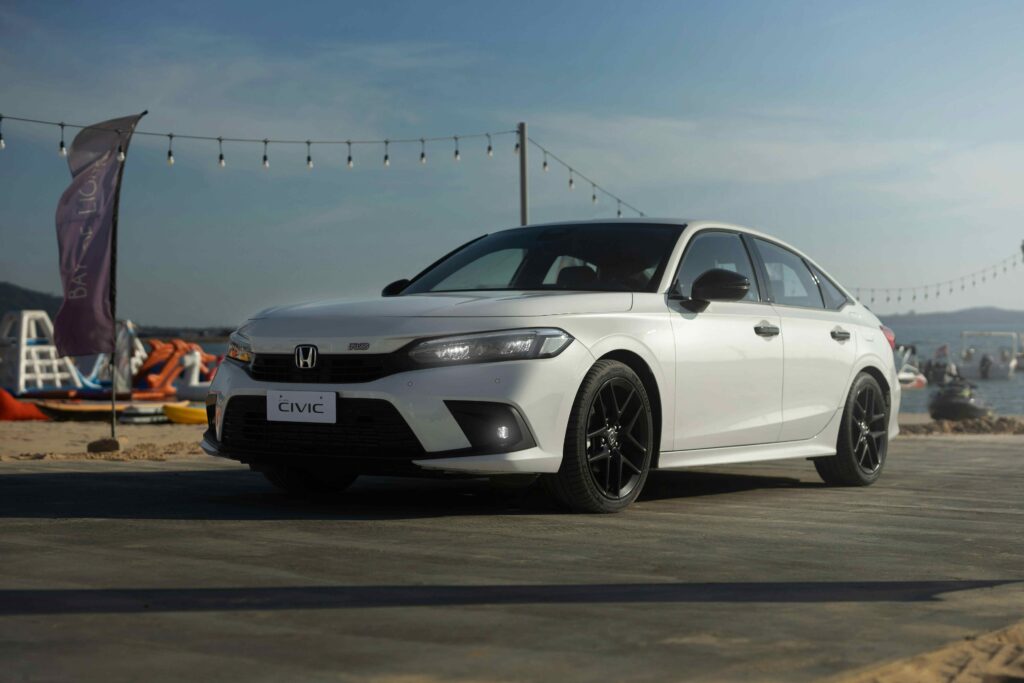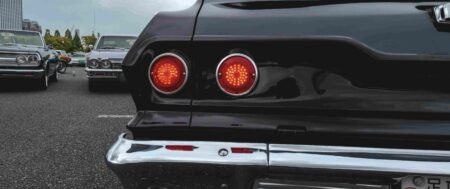Disadvantages of Buying a New Car
While purchasing any new vehicle can be an exciting prospect, it’s essential to consider the potential disadvantages of buying a new car. Despite the fantasy of a shiny, untouched vehicle, new car purchases come with drawbacks that warrant careful consideration. From depreciation to higher costs and limited negotiation leverage, understanding these disadvantages upfront can help prospective buyers make informed decisions and weigh their options effectively.
Diving into the downsides of purchasing a new or used car provides valuable insight into the complexities of the decision-making process and helps buyers navigate the car-buying journey with clarity and confidence.

What Are the Cons of Buying a New Car
Being the first owner of a brand-new car with personal loans is often associated with excitement, but it also comes with its fair share of disadvantages.
Understanding these cons of a personal loan to get a new vehicle can help prospective buyers make informed decisions and weigh their options effectively.

Depreciation
One of the biggest disadvantages of buying a new car from car dealerships is depreciation. New cars lose a significant portion of their value in five to seven years when they’re driven off the lot, with some estimates suggesting depreciation of up to 20% in the first year alone. This rapid depreciation means that the car’s value diminishes faster than the loan balance, leaving buyers “upside down” on their loans, owing more than the car is worth.
Higher Costs
New cars come with higher price tags and monthly payments in the car market compared to used or pre-owned vehicles. In addition to the initial purchase price, new car buyers often face higher insurance premiums, registration fees, and taxes. Financing a new car from a credit union also typically involves higher interest rates, leading to increased overall costs over the life of the loan.
Limited Negotiation Leverage
Dealerships have less incentive to negotiate the price of new cars compared to used ones. Manufacturers often set strict pricing guidelines offered by previous owners, limiting the dealership’s ability to offer significant discounts or incentives. This lack of negotiation leverage can result in buyers paying closer to the manufacturer’s suggested retail price (MSRP) for a new car.
First-Year Model Issues
New car models, especially those in their first year of production purchased from a credit union, may come with unforeseen issues or recalls. Despite rigorous testing and quality control measures, there’s always a risk of encountering teething problems with newly released models. These issues can lead to inconvenience and potentially costly repairs, particularly if the car is no longer under warranty.
Higher Insurance Premiums
Car loans often come with higher insurance premiums and monthly payments compared to used vehicles. The higher value of a new car with personal loans means that insurance companies may charge higher premiums to cover potential repairs, insurance costs, or replacement costs in the event of an accident or theft.

Limited Customization Options
While buying a new car allows buyers to choose specific features and options, there may be limitations on customization compared to used vehicles. Buyers may need to select from pre-configured trim levels or packages, limiting their ability to extend the warranty to customize the car to their exact preferences.
Sticker shock
The higher upfront cost of a new car with auto loans can be a deterrent for many buyers. Even with financing options available, the sticker shock of a new car purchase can lead to hesitation or reluctance to commit to such a significant financial investment.
Higher Taxes and Fees
New car or used car purchases from any registered car dealership are subject to higher taxes and fees compared to used cars. These additional costs, which can include sales tax, title fees, and registration fees, further contribute to the overall expense of buying a new car.
Limited Selection
While dealerships that offer auto loans typically have a wide selection of new cars to choose from, buyers may find themselves limited by availability, especially if they’re looking for specific features or configurations for a fixed period. For almost a decade, limited selection has made it challenging to find the exact make, model, and trim level desired, potentially requiring compromises or extended wait times for custom orders.
Potential for Rapid Technological Obsolescence
The rapid pace of technological advancements in the automotive industry means that new car features and technology can quickly become outdated. Buyers may find themselves with “last year’s model” sooner than expected, with newer, more advanced features available in subsequent model years.
In short, while buying a used car or a new one offers the appeal of ownership of a brand-new vehicle with cruise control, it comes with several disadvantages that buyers should carefully consider. From rapid depreciation, lower emissions, and higher costs to limited negotiation leverage, higher insurance costs, and potential first-year model issues, understanding these cons can help buyers make informed decisions and weigh the pros and cons of buying new versus used.
Ultimately, buyers should evaluate their priorities, budget, and preferences to assess whether buying a new car aligns with their needs and financial goals.
Call Now For Pre-Qualification Info
Is It More Cost-Effective to Buy a New or Used Car

Determining whether it’s more cost-effective to buy a new dream car or a used one depends on other factors, including the individual’s budget, preferences, extended warranty, and priorities.
While new cars with the latest technology and safety features typically come with higher upfront costs, they typically offer lower maintenance expenses and the peace of mind of a manufacturer’s warranty, potentially offsetting initial expenses over time.
Additionally, new cars may qualify for promotional financing rates or incentives, reducing overall financing costs.
On the other hand, used cars generally have lower purchase prices with average monthly payment options in dollars and depreciate at a slower rate than new cars, making them a more affordable option for budget-conscious buyers. However, used cars may come with higher maintenance and repair costs, as well as limited warranty coverage, compared to new cars.
Ultimately, the cost-effectiveness of buying a new or used car is the biggest advantage and depends on factors such as the individual’s financial situation, preferences regarding ownership experience, expected usage and mileage, full coverage insurance, and willingness to accept potential trade-offs between upfront costs and long-term expenses. It’s essential for buyers to carefully evaluate these factors and consider their unique circumstances when deciding between a new or used car purchase.
Call Now For Pre-Qualification Info
How does Depreciation Affect the Value of a New Car
For an auto loan, depreciation on the cost significantly impacts the value of a new car and is one of the most substantial costs associated with vehicle ownership. Depreciation refers to the decline in the car’s value over time, and it begins as soon as the car is driven off the dealership lot.
Understanding how depreciation affects the value of a new car is essential for prospective buyers and can influence their decision-making process.

Immediate Depreciation
New cars experience rapid depreciation in the first few years of ownership, with some estimates suggesting a depreciation rate of up to 20% in the first year alone. This immediate depreciation means that the car loses a significant portion of its value as soon as it’s driven off the lot, resulting in a lower resale value if the owner decides to sell the car shortly after purchase.
Time and Mileage
Depreciation continues over the lifespan of the car, with the rate of depreciation on cost gradually decreasing over time. Factors such as mileage, age, condition, and market demand further influence the car’s depreciation rate. As the car accumulates mileage and ages, its value depreciates at a slower rate compared to the initial years of ownership.
Market Factors
Market conditions, including supply and demand dynamics, final cost, economic factors, and changes in consumer preferences, also impact the depreciation of a new car. Certain car models may depreciate at a faster rate due to factors such as oversupply, lack of demand, or changes in technology.
Brand and Model
Brand reputation and model popularity also influence depreciation rates for buying a used car. Some brands and models retain their value better than others due to factors such as reliability, brand reputation, and resale demand. Luxury cars and high-end brands typically experience higher depreciation rates compared to mainstream brands.
Upgrades and Options
Buying a new car with certain upgrades and options, such as advanced technology features, luxury amenities, and performance enhancements, can affect the car’s depreciation rate. While these options may increase the initial purchase price and are a good way of saving money, they may not necessarily retain their value over time, leading to higher depreciation costs.
Geographical Location
Depreciation rates can vary based on geographical location, with factors such as climate, terrain, and regional market demand influencing the car’s resale value.
Cars purchased in regions with harsh weather conditions or high levels of wear and tear may experience faster depreciation compared to cars in more favorable environments.
Understanding the factors that contribute to depreciation is essential for prospective car buyers to make informed decisions regarding their vehicle purchases.
While depreciation is inevitable, buying a new car with a lower depreciation rate, maintaining the car in good condition, and considering the resale value can help mitigate the financial impact of depreciation over time.
Call Now For Pre-Qualification Info
Are New Cars Not Good?
While buying a brand-new car with an auto loan offers the allure of owning a new vehicle with the latest features, it may not always be the best financial decision for everyone. Several reasons make buying a new car less advantageous compared to purchasing a used or pre-owned vehicle:

Depreciation
New cars experience rapid depreciation as soon as they are driven off the dealership lot. Within the first few years of ownership, new cars can lose a significant portion of their value, often up to 20% in the first year alone. This depreciation means that owners may owe more on their car loan than the car is worth, leading to negative equity.
Higher Purchase Price
New cars come with higher price tags and loan payment alternatives compared to used or pre-owned vehicles. The initial purchase price of a new car, coupled with higher insurance premiums, registration fees, oil changes, and taxes, can result in a substantial financial burden for buyers as their price comes in thousands of dollars.
Limited Negotiation Leverage
Dealerships have less incentive to negotiate on the price of new cars compared to used ones. Manufacturers often set strict pricing guidelines, limiting the dealership’s ability to offer significant discounts or incentives.
This lack of negotiation leverage can result in buyers paying closer to the manufacturer’s suggested retail price (MSRP) for a new car.
First-Year Model Issues
New car models, especially those in their first year of production, may come with unforeseen issues or recalls. Despite rigorous testing and quality control measures, there’s always a risk of encountering teething problems with newly released models. These issues can lead to inconvenience and potentially costly repairs, particularly if the car is no longer under warranty.
Higher Insurance Premiums
New cars often come with higher insurance premiums compared to used vehicles. The higher value of a new car with gap insurance means that insurance companies may charge higher premiums to cover potential repair or replacement costs in the event of an accident or theft.
More Expensive Financing
Financing a new car typically involves higher interest rates compared to used cars. Buyers may end up paying more in interest and loan payments over the life of the loan, increasing the overall cost of ownership.
While new vehicles offer the appeal of ownership, they come with several disadvantages that buyers should carefully consider. From rapid depreciation, loan payments, money terms, and higher costs to limited negotiation leverage and potential first-year model issues, understanding these drawbacks can help buyers make informed decisions and weigh the pros and cons of buying new versus used.
Call Now For Pre-Qualification Info
FAQs
Why is depreciation a concern when buying a new car?
Depreciation leads to a significant decrease in the car’s value over time and leads to low mileage, resulting in financial losses for the owner when reselling or trading in the vehicle.
What are the drawbacks of higher insurance premiums for new cars?
One of the main disadvantages of new cars is that they often come with financial offers like higher insurance premiums due to their higher value, increasing overall ownership costs and insurance expenses.
How does limited negotiation leverage affect new car buyers?
Dealerships have less incentive to negotiate the price of new cars, limiting buyers’ ability to secure significant discounts or incentives, leading to higher purchase prices.
Conclusion
While buying a new car offers the appeal of owning a vehicle purchased on auto loans with the latest features, it comes with several disadvantages that buyers should carefully consider. From rapid depreciation and higher upfront costs to limited negotiation leverage and potential first-year model issues from the previous owner, understanding these drawbacks is essential. Prospective buyers must weigh these factors against their priorities, budgets, and preferences to make an informed decision. Ultimately, it is the best advice to consider both the advantages and disadvantages of buying a new car, which is crucial to ensuring that the chosen vehicle aligns with the buyer’s needs and financial goals.







